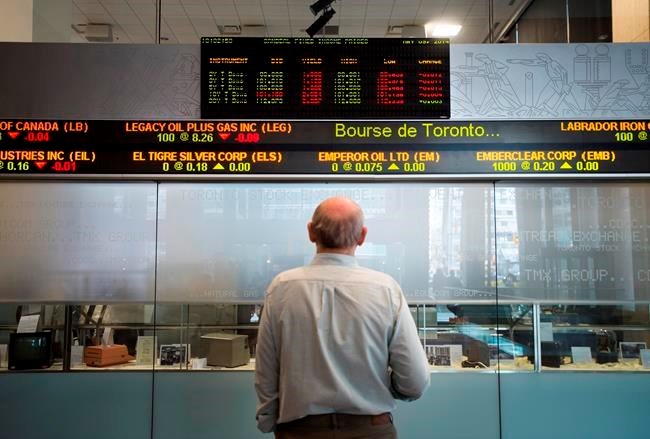TORONTO — North American stock markets dropped after an initial flurry despite the U.S. Federal Reserve making a surprise cut to its benchmark interest rate to offset the impact of the novel coronavirus.
The world's largest central bank cut its rate by half a percentage point in its first rate move between regular meetings since the great financial crisis in 2008.
"Certainly they got the reaction that they wanted for the first little bit after they announced their move, which is the markets moving up, but after that it's been down," Anish Chopra, managing director with Portfolio Management Corp.
The Dow Jones industrial average gained as much as 375 points but ended Tuesday 785.91 points lower on the day at 25,917.41 after Monday's nearly 1,300-point rebound. The S&P 500 index was down 86.86 points at 3,003.37, while the Nasdaq composite was down 268.08 points at 8,684.09.
Interest rate cuts have been used in the past to encourage consumers and businesses to spend more, but the impact may be muted in this situation because people are concerned about catching the virus and are going out less.
"It doesn't appear on the surface that an interest rate decline would help a factory open more, would encourage somebody to go on a cruise or travel given that there's health risk here," Chopra said in an interview.
The surprise emergency rate cut was also confusing to some investors because it appeared to signify that things are worse than they had expected or been told by administration officials.
"A 50 basis point inter-meeting cut has some investors spooked that the impact of the coronavirus could be far more serious on the U.S. economy than what investors were originally anticipating," Chopra said.
He said equity markets will rally when there's some clarity around the economic impact from COVID-19.
The rate cut didn't initially achieve its goal because of the old trader adage: Buy on rumour, sell on news.
Markets rose at the end of Friday's big selloff and into Monday's rebound on rumours of co-ordinated global central bank measures. But now that the cut has been done, it raises the question about what's next.
"There may be more rate cuts coming at the Fed's meeting in a couple of weeks time or not at all, they did what they needed to today."
The Bank of Canada is expected to follow the U.S. lead and cut its interest rate Wednesday for the first time in almost five years.
A cut was likely anyway because the Canadian economy showed signs of slowing but the size of the Fed's cut could cause the Bank of Canada to think how far it will go, Chopra said.
"Part of the problem comes with the impact on the currency. If the U.S. Federal Reserve continues to cut and the Bank of Canada doesn't there is the potential for the Canadian dollar to rise, which isn't what the Bank of Canada wants, so I think they'll make a 25 basis point cut tomorrow with the chance of a 50 basis point cut."
The S&P/TSX composite index closed down 129.64 points at 16,423.62.
It dropped less than U.S. markets because of commodities.
Materials was one of four sectors to climb. It rose nearly three per cent as investors flocked to the safety of gold and U.S. bonds. Centerra Gold Inc. rose 8.5 per cent followed by Yamana Gold Inc. at six per cent. Barrick Gold Corp gained four per cent to lead the TSX composite index.
The April gold contract was up US$49.60 at US$1,644.40 an ounce and the May copper contract was down 2.2 cents at US$2.57 pound.
The U.S. 10-year bond yield sank below one per cent for the first time.
The Canadian dollar traded for 74.83 cents US compared with an average of 74.87 cents US on Monday.
Defensive sectors such as consumer staples, utilities and real estate were also higher.
Energy dropped 3.5 per cent despite higher crude oil prices with shares of Husky Energy Inc. down 5.7 per cent. Suncor Energy Inc. lost 4.3 per cent.
The April crude contract was up 43 cents US at US$47.18 per barrel and the April natural gas contract was up 4.4 cents at US$1.80 per mmBTU.
Crude rose on rumours that OPEC could cut its output more than expected to help stabilize prices in the face of falling demand.
This report by The Canadian Press was first published March 3, 2020.
Companies in this story: (TSX:HSE, TSX:CG, TSX:YRI, TSX:ABX, TSX:SU, TSX:GSPTSE, TSX:CADUSD=X)
Ross Marowits, The Canadian Press



